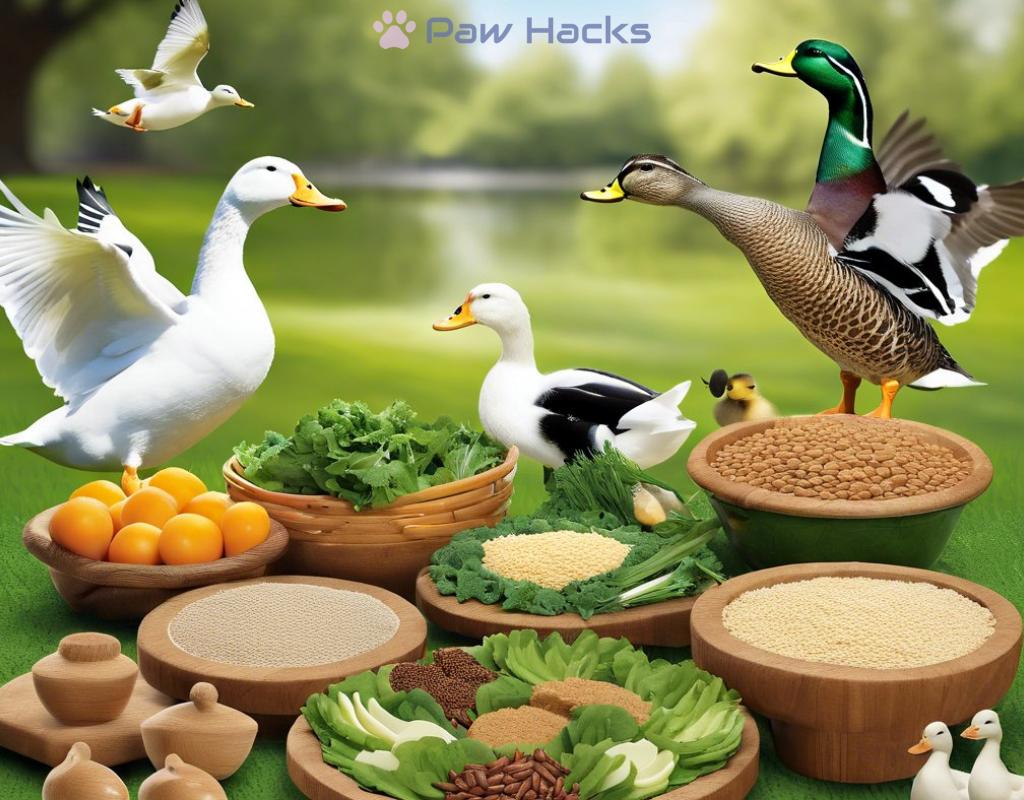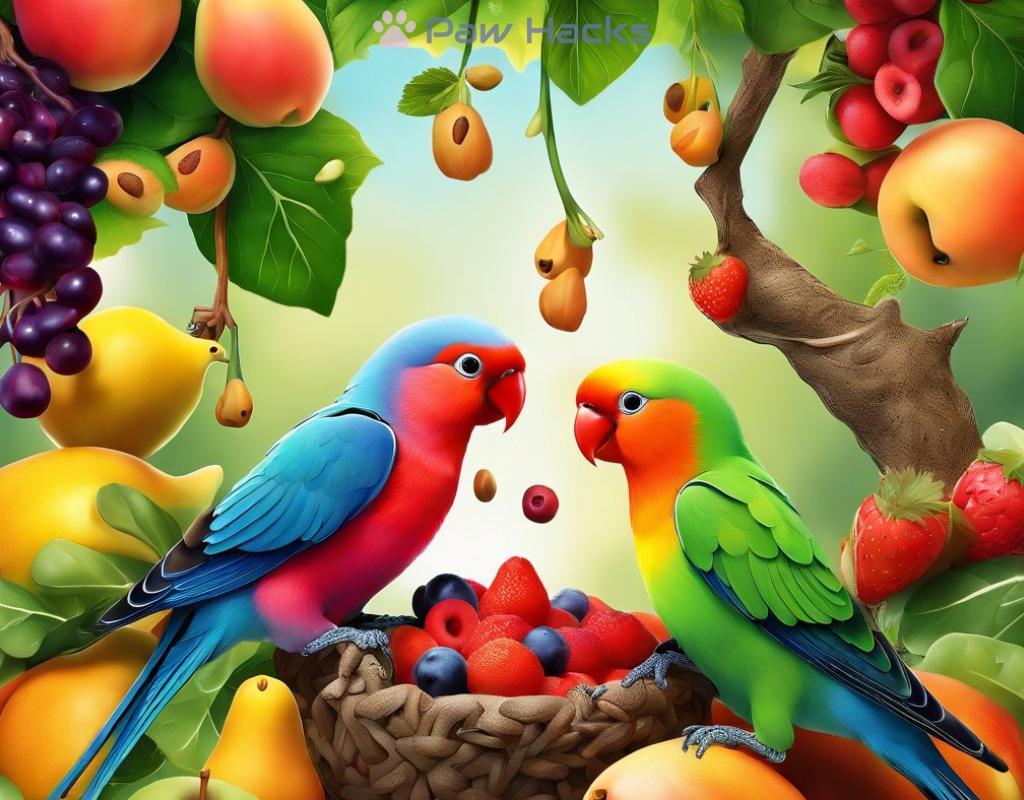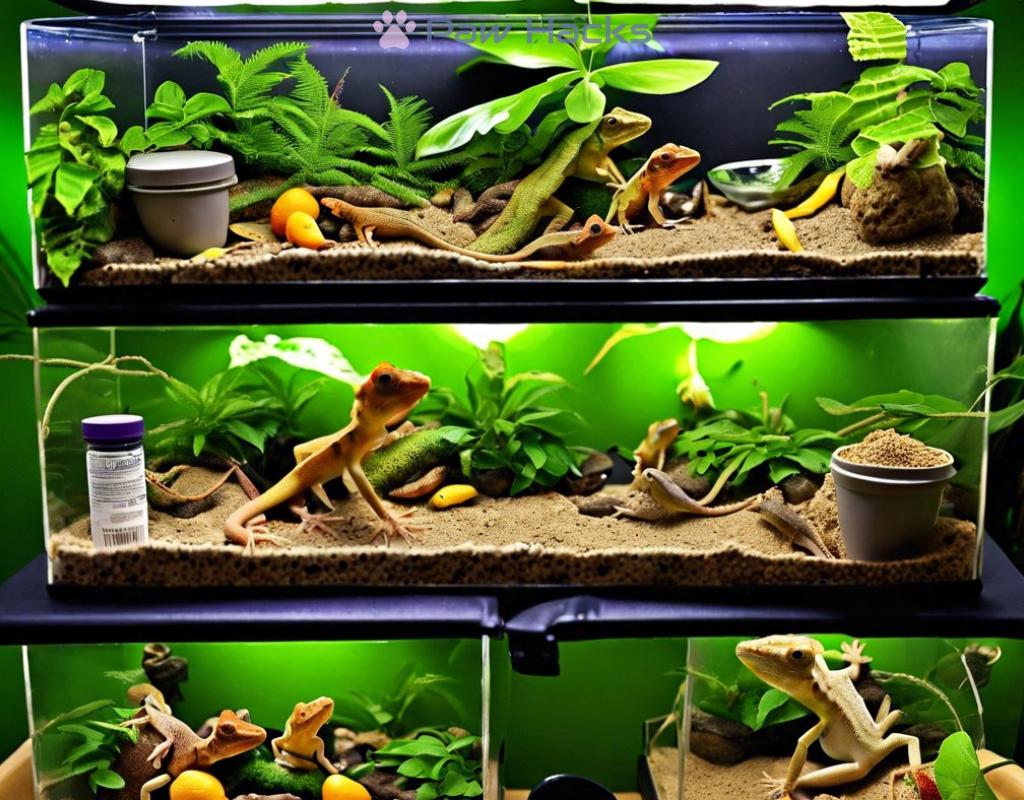Feeding Guidelines for Pet Ducks
The Essential Diet: What Your Pet Duck Needs to Thrive
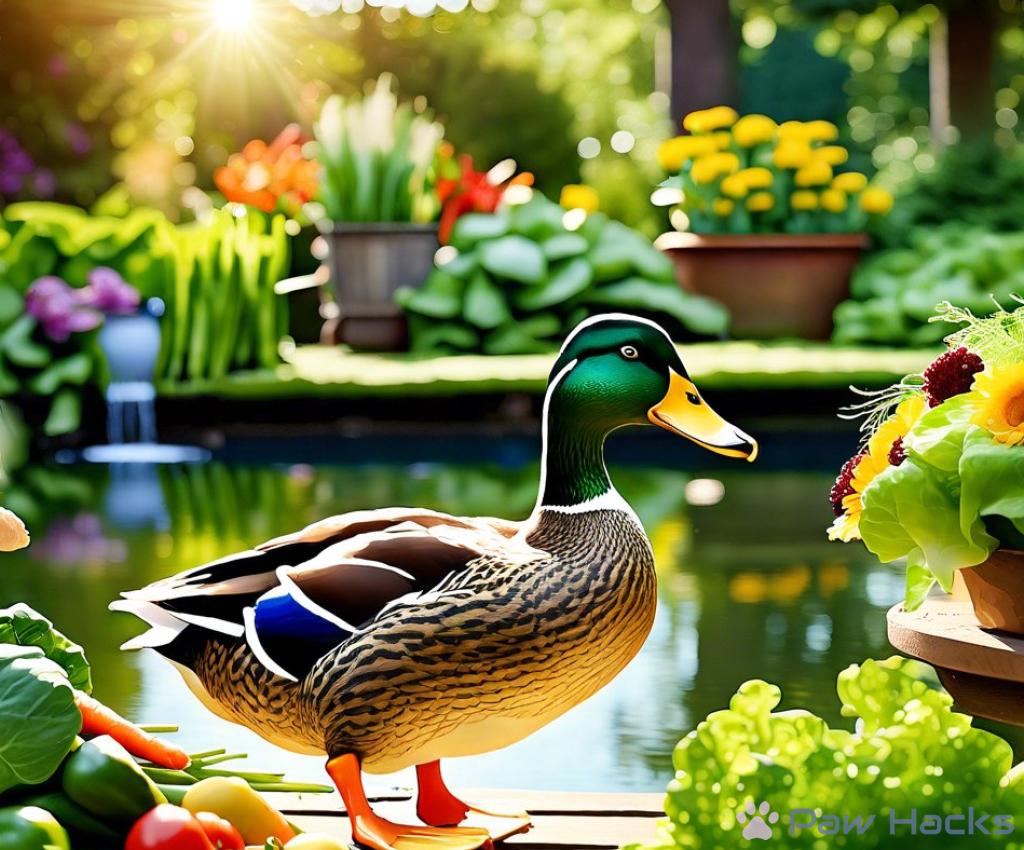
Feeding your pet duck is not just about tossing some bread crumbs. Ducks require a balanced diet that caters to their unique nutritional needs. Understanding these needs is crucial for keeping your feathered friend healthy and happy. A proper diet can enhance their growth, egg production, and overall well-being.
Not all ducks are the same, and their dietary requirements can vary based on age, breed, and lifestyle. Let’s dive into what makes up a nutritious diet for your beloved pet duck.
A balanced diet for your pet duck is akin to a well-rounded meal for humans. It should include a variety of foods to ensure they get all the necessary nutrients. Here’s a breakdown of the essential components:
- Waterfowl Pellets: These are specially formulated to meet the dietary needs of ducks. They contain essential vitamins and minerals.
- Grains: Ducks love grains like corn, wheat, and oats. However, these should be given in moderation.
- Fresh Vegetables: Leafy greens such as kale, lettuce, and peas are great choices for added nutrients.
- Protein Sources: Mealworms, insects, and even small fish can provide the protein ducks need, especially for growing ducklings.
Providing a mix of these foods will help ensure your duck stays healthy and thrives in your care.
While it’s important to know what to feed your pet duck, it’s equally crucial to understand what to avoid. Some foods can be harmful or even toxic to ducks. Here are some common dietary pitfalls to steer clear of:
- Bread: While ducks may enjoy bread, it provides little nutritional value and can lead to obesity.
- Citrus Fruits: Fruits like oranges and lemons can upset a duck’s digestive system.
- Processed Foods: Human snacks and junk food are often high in salt and sugar, which are detrimental to ducks.
Being aware of these harmful foods will help you create a safe and healthy feeding environment for your pet duck.
Healthy Treats: Safe Snacks That Delight Your Duck
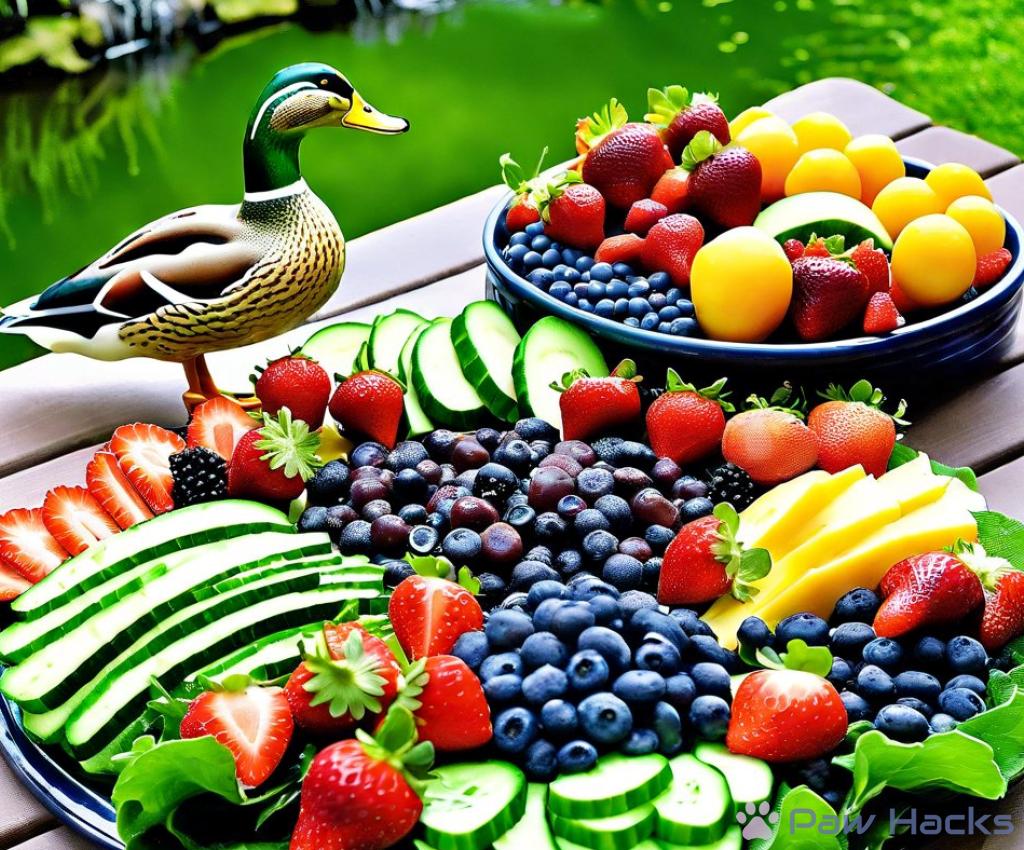
Treats can play a significant role in your pet duck’s diet, not only providing enjoyment but also enhancing their overall well-being. Just like us, ducks appreciate a little variety in their meals. Healthy treats can boost their mood and serve as an effective training tool. However, it’s vital to ensure that these snacks are safe and nutritious. Here, we explore some delightful options that your feathered companion will love.
When choosing treats for your pet duck, consider their nutritional value and safety. Here’s a selection of delicious snacks that can be enjoyed in moderation:
- Fruits: Ducks love fruits like strawberries, blueberries, and bananas. These can be served fresh and chopped into small pieces.
- Vegetables: In addition to leafy greens, ducks appreciate carrots, cucumbers, and squash. These snacks can be offered raw or lightly steamed.
- Seeds: Pumpkin and sunflower seeds are a great source of healthy fats and can be sprinkled in their feed as a special treat.
- Cooked Grains: Brown rice or quinoa can be served warm and provide energy for your active duck.
- Herbs: Fresh herbs like basil, parsley, and cilantro are not only tasty but also provide additional vitamins and minerals.
While treats can be fun, moderation is key. It’s important to establish a routine that includes healthy snacks while ensuring that your duck’s main diet remains balanced. Here’s a simple guideline for integrating treats into your feeding plan:
| Time of Day | Main Meal | Treats |
|---|---|---|
| Morning | Waterfowl pellets | Small piece of fruit |
| Afternoon | Fresh vegetables | Cooked grain or seeds |
| Evening | Waterfowl pellets | Herbs or veggies |
This schedule helps ensure that your duck enjoys a variety of flavors throughout the day while still receiving essential nutrients. Remember, every duck is unique, so it may take some time to discover their favorite treats!
Avoiding Common Mistakes: Foods to Never Feed Your Duck
As a responsible duck owner, one of your most critical tasks is to ensure that your feathered friend receives a diet that promotes health and well-being. While there are many foods that ducks can safely enjoy, there are also several common mistakes that can lead to serious health issues. Being informed about what to avoid is just as important as knowing what to feed your duck. Below, we explore the foods that should never make their way into your duck’s diet.
When it comes to feeding ducks, some items may seem harmless but can actually pose significant risks. Here’s a detailed list of foods you should steer clear of:
- Bread: Although ducks may love the taste of bread, it offers minimal nutritional value and can lead to obesity and malnutrition.
- Citrus Fruits: Fruits like oranges and lemons are acidic and can upset a duck’s digestive system, leading to discomfort.
- Processed Foods: Items like chips, snacks, and baked goods are often high in salt and sugar, which are detrimental to a duck’s health.
- Chocolate: This sweet treat is toxic to many animals, including ducks, and can cause serious health issues.
- Avocado: While delicious for humans, avocados contain a substance called persin, which is harmful to ducks and can lead to respiratory distress.
By eliminating these harmful foods from your duck’s diet, you can help ensure a long and healthy life for your pet. Always remember that a well-balanced diet is vital, and it’s important to provide a variety of safe foods. If you’re ever unsure about a specific food item, consult a veterinarian who specializes in avian care to get the best advice for your unique situation. By being vigilant and informed, you can make sure that your pet duck enjoys a nutritious and safe diet.
The Importance of Fresh Water: Hydration Tips for Happy Ducks
While providing a balanced diet is crucial for your pet duck’s health, one often overlooked aspect is their access to fresh water. Water plays a vital role in digestion, temperature regulation, and overall well-being. Ducks are naturally drawn to water, and ensuring they have clean drinking water available can significantly impact their happiness and health. Let’s explore why hydration is essential and how to maintain a proper water supply for your feathered friend.
Ducks have unique hydration needs, and understanding these can help you provide the best care possible. Fresh water is not only necessary for drinking but also for keeping their feathers clean and healthy. Here are a few reasons why fresh water is indispensable:
- Digestion: Ducks require water to aid in the digestive process, helping to break down food and absorb nutrients effectively.
- Temperature Regulation: Drinking water helps regulate their body temperature, especially during hot weather.
- Feather Maintenance: Ducks often take dips in water to keep their feathers clean, which is essential for insulation and buoyancy.
Choosing the right source of water for your duck is vital. Here are some options to consider:
| Water Source | Advantages | Considerations |
|---|---|---|
| Clean Bowls | Easy to refill and monitor water levels. | Needs frequent cleaning to prevent bacteria growth. |
| Water Troughs | Allows ducks to swim and splash, promoting natural behaviors. | Must ensure the water is regularly changed to keep it clean. |
| Automatic Waterers | Provides a constant supply of fresh water. | Initial setup may require investment and maintenance. |
To keep your duck hydrated and healthy, it’s essential to maintain the quality of their water. Here are some tips:
- Change the water at least once a day to prevent algae and bacteria buildup.
- Use a water conditioner if necessary to remove harmful chemicals from tap water.
- Monitor the water temperature; ducks prefer water that is not too cold or hot.
- Keep the water containers in shaded areas during warm weather to prevent overheating.
By prioritizing your pet duck’s hydration needs and ensuring they have access to fresh water at all times, you will contribute significantly to their overall well-being. Happy ducks make happy owners, and fresh water is a cornerstone of their happiness!
Feeding Schedules: Establishing a Routine for Your Duck’s Well-being
Creating a feeding schedule for your pet duck is essential for their overall health and happiness. Just like humans, ducks thrive on routine, and having a consistent feeding plan helps regulate their digestion and energy levels. A well-structured feeding schedule not only ensures your duck receives the right nutrients at the right times but also fosters a sense of security and predictability in their daily life.
Establishing a daily feeding routine can help you manage your duck’s dietary needs effectively. Here are some important steps to consider:
- Morning Feeding: Start the day by offering waterfowl pellets, which are packed with essential nutrients. This meal should provide the bulk of their daily nutritional requirements.
- Midday Snacks: Incorporate healthy treats such as fresh vegetables or cooked grains around midday. This not only breaks the monotony of their meals but also satisfies their curiosity and desire for variety.
- Evening Meal: Conclude the day with another serving of waterfowl pellets, ensuring your duck has enough energy to settle down for the night.
By following this pattern, you can create a balanced diet and help your duck maintain optimum health.
Every duck is unique, and understanding their individual needs can enhance their feeding experience. Some ducks may require more protein, particularly during growth periods, while others may thrive on a more plant-based diet. Observing your duck’s behavior can provide clues:
- If your duck is particularly active or playful, they may benefit from extra protein sources like mealworms or insects.
- Ducks that are less active or older may require fewer calories and more fiber-rich vegetables.
By tailoring your feeding schedule to your duck’s specific requirements, you can ensure they are both satisfied and healthy.
Maintaining consistency in feeding times is crucial. Ducks have an internal clock and will come to expect their meals at specific times. This predictability not only aids in digestion but also encourages a bonding experience between you and your feathered friend. Remember to monitor their reactions to different foods and adjust portions as necessary to avoid overfeeding or underfeeding.
In conclusion, establishing a thoughtful feeding schedule is one of the best ways to support your pet duck’s well-being. By crafting a daily routine, recognizing their unique needs, and ensuring consistency, you will foster a healthy and happy life for your beloved duck.
Share this content:
